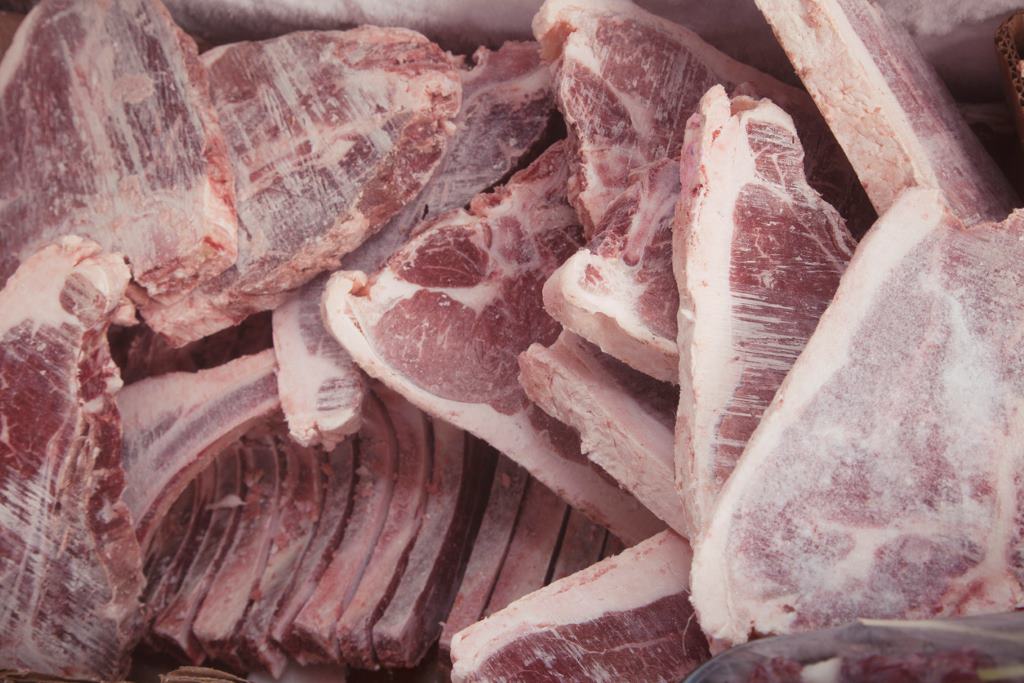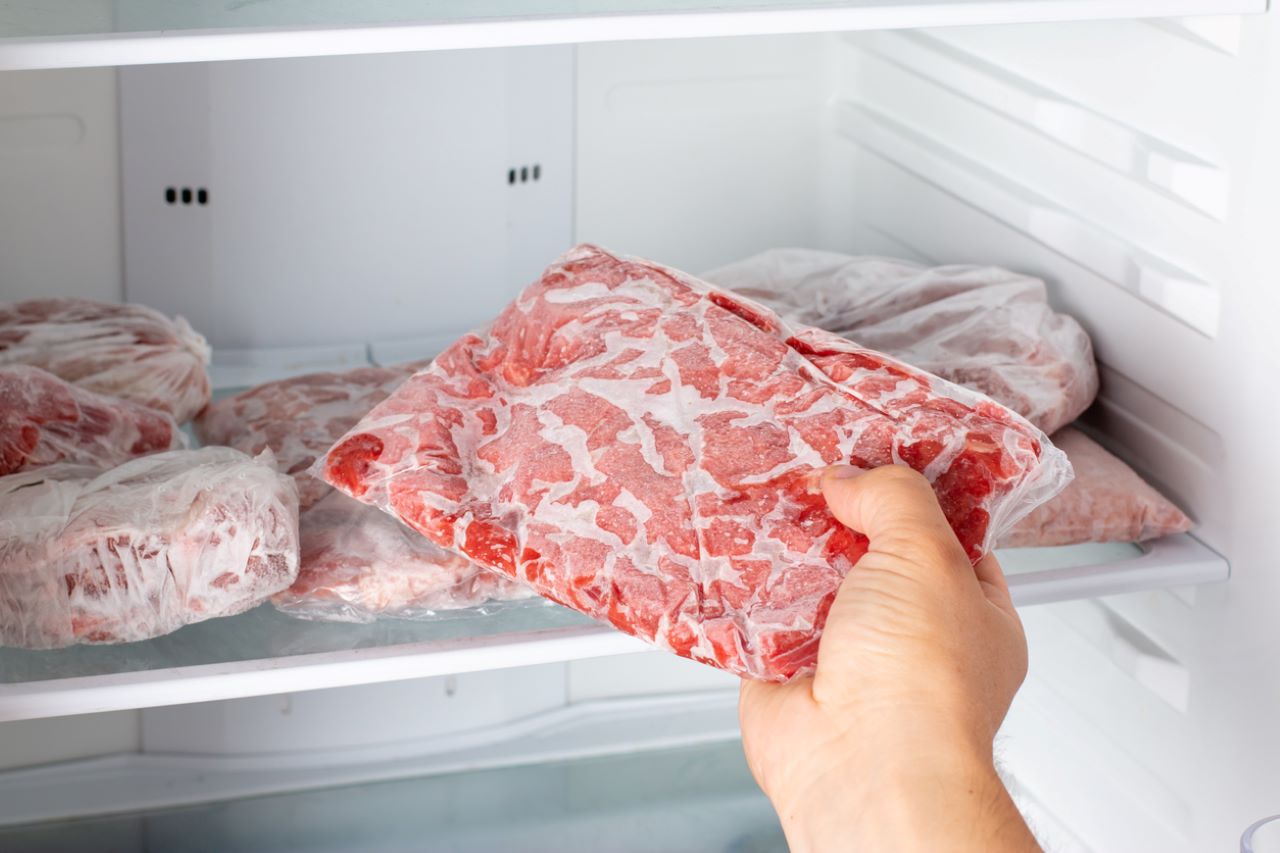Freezing Meat for Long-Term Storage: Tips and Guidelines

When it comes to running and maintaining a sustainable kitchen, managing how we store our food plays a crucial role - and this is especially true when it comes to meat, which remains a classic staple in many diets.
The art of freezing meat for long-term storage is both a science and a culinary strategy that can help you preserve the quality and flavor of your favorite cuts, so whether you're a home cook looking to make the most of bulk buying, or a business needing to manage inventory, understanding the best practices for freezing meat is essential. In the following guide, we’re going to give you our expert tips and guidelines to ensure that your meat remains delicious and safe, from the moment it's frozen to when it's thawed and prepared. Let’s dive in!
Why Is It Important to Freeze Meat?
First off, convenience; freezing is a great practical solution when it comes to extending a piece of meat’s shelf life, all while retaining nutritional value, quality, and taste. It's also an effective method to prevent food wastage, manage household or business inventory, and ensure you always have ingredients on hand for meal preparation. Moreover, it’s necessary if meat is approaching its use-by date; freezing the meat prevents unnecessary waste, allowing you to make use of it further down the line.
Choosing the Right Cuts for Freezing
Not all meat cuts freeze equally; fattier cuts like pork belly or ribeye steaks tend to freeze better than leaner ones, as fat helps maintain moisture and texture. However, with proper preparation, most cuts can be successfully frozen.
What’s important is to consider your cooking preferences and how you plan to use the meat when selecting cuts for freezing; bulkier pieces may require more thawing time, so if you're looking for convenience, opting for smaller portions or slicing the meat before freezing could be beneficial.
Proper Packaging Techniques
The key to preserving the quality of frozen meat lies in the packaging; this is because air exposure is the number-one enemy, and can lead to freezer burn and loss of flavor over time. Vacuum-sealing is the gold standard, where you’re able to remove air and seal the meat in an airtight environment. If a vacuum sealer isn't available, wrap the meat tightly in plastic wrap, then again in aluminum foil or place it in a freezer bag, pressing out as much air as possible before sealing. Labeling the package with the date and type of meat can also be a great way to help keep your freezer organized and ensure you use older stocks first.
Freezer Temperature and Organization
Maintaining the correct freezer temperature is absolutely essential for long-term meat storage to ensure your meat remains safe to consume once defrosted. Ideally, the freezer should be set at -18°C (0°F) or lower - this prevents bacterial growth and ensures that the meat remains frozen solid. Regularly check your freezer's temperature with a thermometer to ensure it's at the correct setting.
You can also look into freezer trailers for businesses if you’re operating at a large scale; these trailers will typically come with in-built temperature regulation, so you won’t need to worry about the shelf-life of your products while you deal with the day-to-day operations of your business.
Best Practices for Freezing Process

When freezing meat, consider how quickly it cools and how it's positioned in the freezer. Cooling meat rapidly to freezing temperature prevents the formation of large ice crystals, which can damage muscle fibers and affect texture. Lay flat packaged meats to freeze more evenly and stack them only after they're fully frozen. This method also maximizes space and helps maintain an organized freezer.
Safety Considerations
Safety is another key concern when freezing and thawing meat; always freeze meat products before their use-by date and never try refreezing meat that has already been thawed. Thawing should ideally be done in the refrigerator to keep the meat at a safe temperature throughout the process, but if you need to thaw meat quickly, you can use a cold water bath or microwave. Just make sure to cook it immediately after thawing to prevent bacterial growth.
Freezing Meat Alternatives
For those exploring meat alternatives or looking to freeze other protein sources, similar principles apply. Plant-based meats, fish, and poultry can all be frozen using the techniques outlined above. The key to success remains in minimizing air exposure and ensuring products are securely wrapped and properly labeled.
The Bottom Line
Mastering the art of freezing meat for long-term storage not only enhances your culinary repertoire but also promotes a more sustainable and efficient kitchen - and freezing itself is a great way to reduce waste, and always be prepared for meal planning.
If your business demands even more robust solutions for freezing and storage, you can also rent quality freezer trailers in the UK; these trailers offer ample space, controlled temperatures, and the flexibility to meet the needs of any business, large or small. Contact Ice Cool Trailers today and discover how our solutions can enhance your food storage strategies for good.
FAQs
Can I freeze cooked meat as well as raw?
Yes - cooked meat can be frozen and is a great way to save leftovers for future use. Just ensure it’s cooled quickly and packaged properly to avoid any moisture loss. Remember, the quality of the meat once thawed may vary depending on the dish and how it was initially prepared.
How long can I safely store frozen meat?
While freezing meat stops bacterial growth, quality can diminish over time. Generally, frozen raw meats maintain quality for up to 12 months, whereas frozen cooked meats are best used within 2-6 months. However, these time frames can vary based on the type of meat and your freezer's consistency at maintaining optimal temperatures.
Does freezing meat affect its nutritional value?
Freezing meat essentially pauses its state, preserving its nutritional value. There might be a minimal loss of some water-soluble vitamins (like Vitamin C and B vitamins) in the freezing process, but this is negligible and doesn't significantly impact the meat's overall nutritional profile.
How can I prevent freezer burn?
Freezer burn occurs when air reaches the meat’s surface, causing dehydration and oxidation. To prevent this, ensure your meat is wrapped tightly and securely, minimizing its exposure to air. Vacuum sealing is the most effective method to prevent freezer burn, keeping your meat fresher for longer.
Is it safe to freeze meat in its original packaging?
While you can freeze meat in its original packaging, adding an extra layer of protection is advisable. Original packaging is often permeable to air, which can increase the risk of freezer burn. For best results, repackage meat with a vacuum sealer or wrap it tightly in plastic wrap followed by aluminum foil or a freezer bag.



